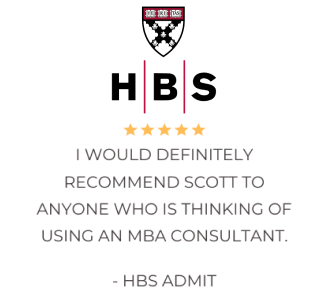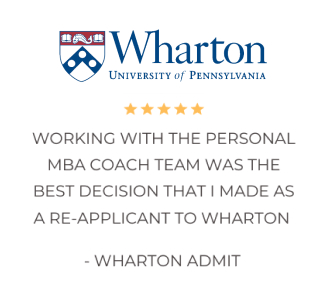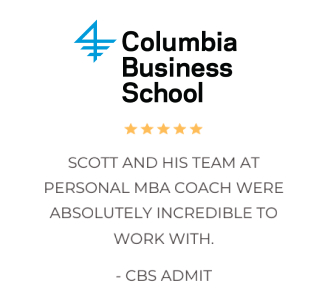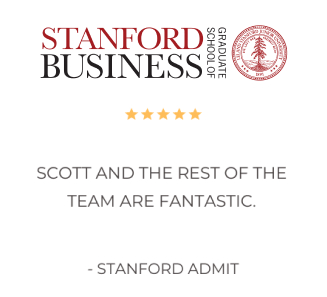If you are hoping to apply to business school this fall and you have not begun working on your MBA applications, NOW is a great time to start! Though deadlines have not been announced, Personal MBA Coach expects that most top MBA programs will have early to mid-September round 1 MBA applications.
To help you get started, Personal MBA Coach has outlined the 5 steps you should begin taking today (even before you begin drafting your application essays).
5 Steps to Kick Off Your Round 1 Top MBA Applications Today
1) Narrow your school list and schedule campus visits if possible
Research the programs that best fit with your long-term goals and ideal learning environments. Pay careful attention to each school’s culture and the industries where its graduates are most often placed. Make sure that you have some “reach” schools, some “more likely” schools and some “safer” schools, especially if you want to ensure you get in this time around. Personal MBA Coach’s average client applies to 6 to 8 schools, and it is important that you have a well-rounded list.

Next, if it is realistic based on your location and work schedule, you should try to visit the campus before applying.
If an in-person visit is not practical for you, consider attending virtual tours and events. Whether or not you are able to visit, look for current students or alumni in your immediate or extended networks and take the time to talk to them now! Learn about their experiences, what sets their programs apart, etc. These days, there are many virtual opportunities to connect with students and alumni as well.
Sign up to attend the upcoming campus visits!
- Harvard Business School MBA Program Open House – May 9th, May 16th
- Stanford GSB MBA Campus Visit Day – May 2nd, May 5th, May 9th, May 12th, May 16th, May 19th, May 23rd, May 30th
- Columbia Business School MBA Campus Visit – May 12th, May 15th, May 19th, May 22nd, May 28th (virtual information session)
- Kellogg Campus Visits – May 9th, May 16th, May 30th
- Chicago Booth Full-time MBA Program In-Person Campus Visits – May 1st, May 5th, May 8th, May 12th, May 15th, May 19th, May 22nd
2) Fine-tune and articulate your career goals
Most business school applications will ask you to think about your career goals. This is a very important question, and you should give it serious thought before MBA round 1 deadlines begin to approach. Admissions directors want to know how you will make the business world better when you leave their campuses and what your unique mark will be. The best career essay will do two things:
1. Connect your past career to your future goals.
Whether you plan to take your career in a completely different direction, make a small career pivot or return to the same company post-MBA, it is important to connect your past to your future.
2. Include career goals that are focused and attainable.
Your career essay should be specific and generally include both a short-term and long-term goal (though of course pay attention to each question’s wording – for more tips on how to think about your MBA goals, check out this blog).
No one is going to hold you to what you put in your essay, but it is important to think through and convey your plan. Your goals should also be attainable. Do not expect to become the CMO one year after business school. Look at sample job postings in your target companies and the required experience to determine what might be feasible for you.
Need more help articulating your goals? Check out this quick tips video with Scott Edinburgh, founder of Personal MBA Coach, or schedule a consultation today to learn how we can help you through our Comprehensive Packages:
3) Think about your personal story
We devote the first part of each engagement with candidates to crafting a winning personal story. This is the most important part of the MBA application, and it can also be the hardest. We advise our candidates to start this process months, if not years, in advance! The good news is that everyone has a personal story.
What should you include in your personal story?
This will differ for every candidate but across the board we can tell you, not everything! No one wants to read 1,000+ words with a chronological flow of your life. Instead, you must be focused, logical and unique.
This is also not the time to tell the admissions committee what you think they want to hear. Instead, think about what is most important to you, what drove your career and personal decisions, and what connects these all together.
No candidate is perfect; instead, we chart the best course we can with the hand we were dealt, and the best essays show this. To find out how to craft a compelling personal story, check out this blog.
4) Select and prepare your recommenders
Selecting the right recommenders is a very important part of the application process. It can be tempting to select the person with the most prestigious resume or the easiest person to discuss your business school plans with. Personal MBA Coach encourages you instead to carefully weigh your options and choose recommenders who know you best, can write great letters and can compare you to other applicants (more on this here).
Once you have selected the right person, you also have to prepare them carefully. We often hear of candidates who ask someone to write the letter, ensure it gets submitted and call it a day. This can be a big mistake! Your role in the LOR process should be much more involved than this, so do not leave LOR preparation until right before MBA round 1 deadlines. Watch this video for more tips:
5) Customize your MBA resume
It is also a great time to work on fine-tuning your MBA resume. Even if you have an updated professional resume, Personal MBA Coach recommends you take the time to customize this resume for your MBA applications. This is because professional resumes and MBA resumes accomplish different goals. Unlike a professional resume, which is often filled with industry jargon, an MBA resume needs to demonstrate a track record of success and leadership and highlight transferrable skills. Find out more about how to craft a compelling MBA resume here.
Contact Us for MBA Application Support Today
Ready to take the plunge and get started on your MBA applications? Reach out to Personal MBA Coach today to find out how we can help you with our Comprehensive Packages!




















